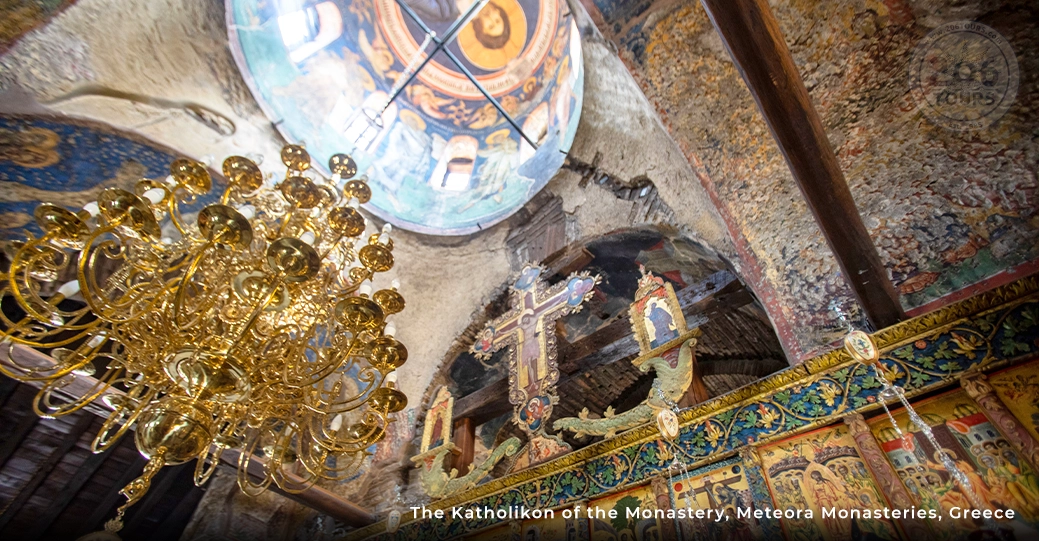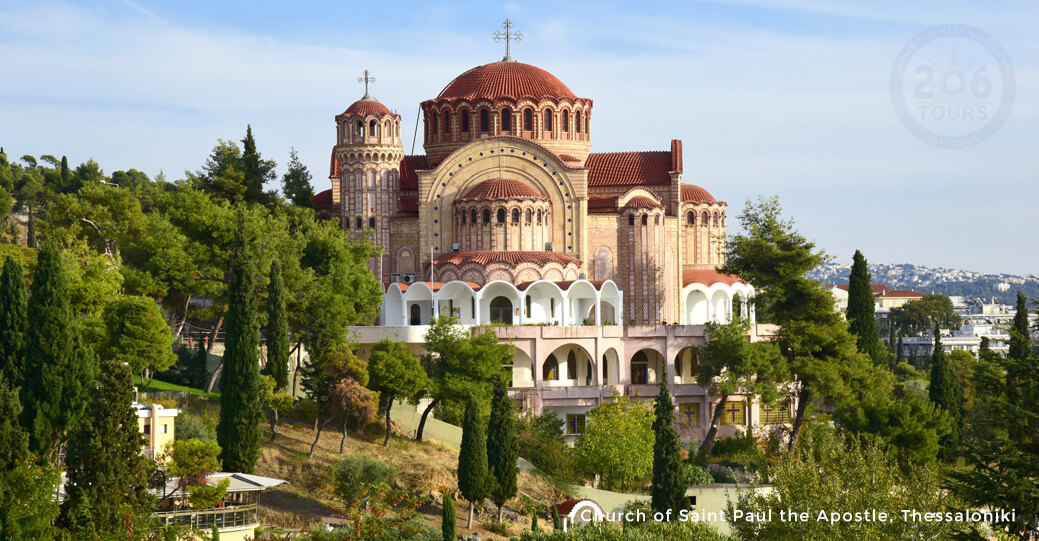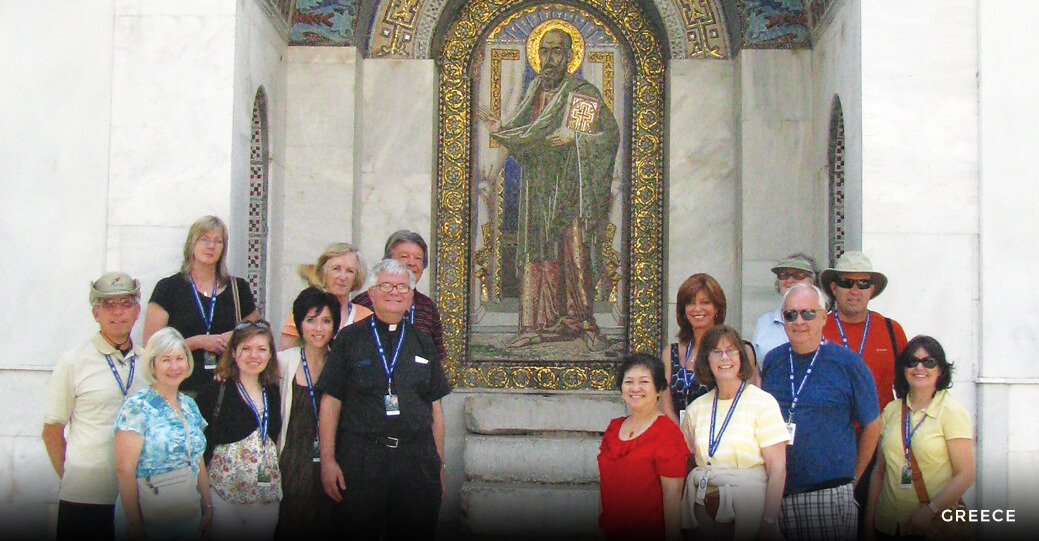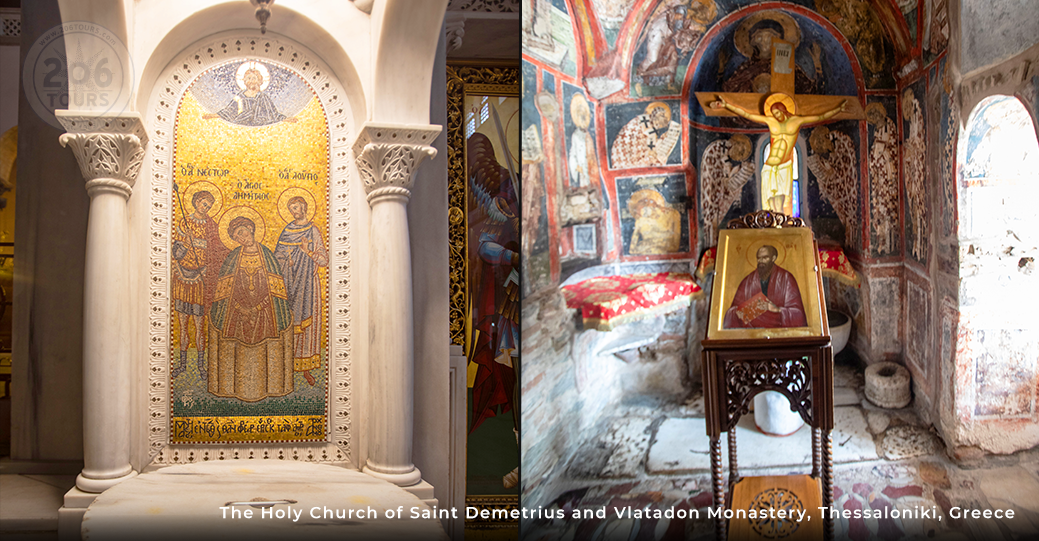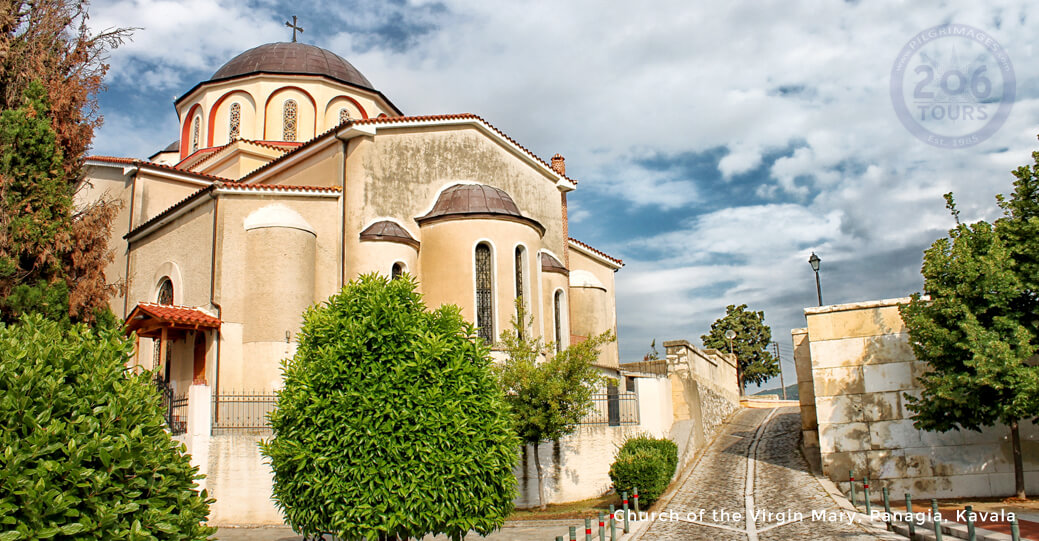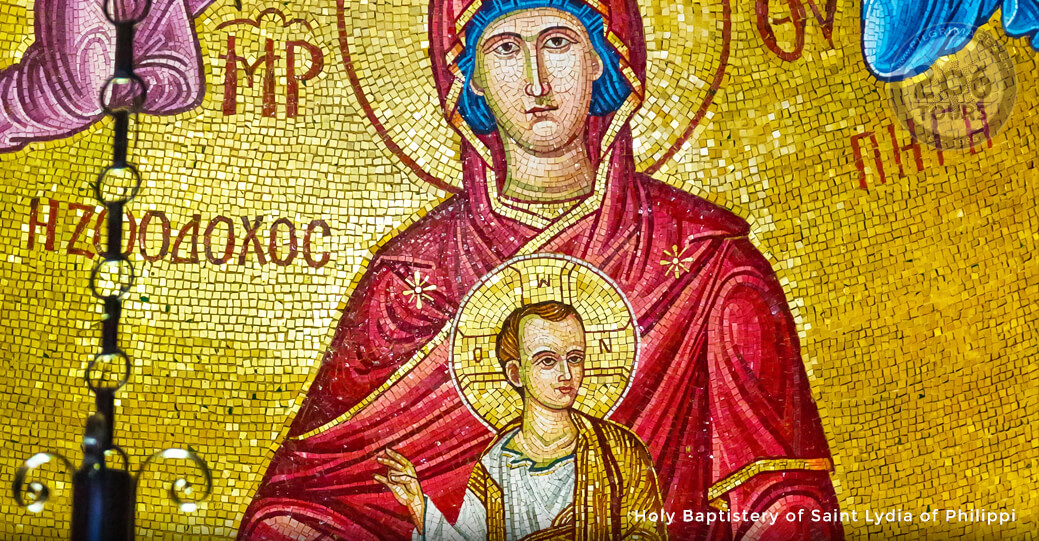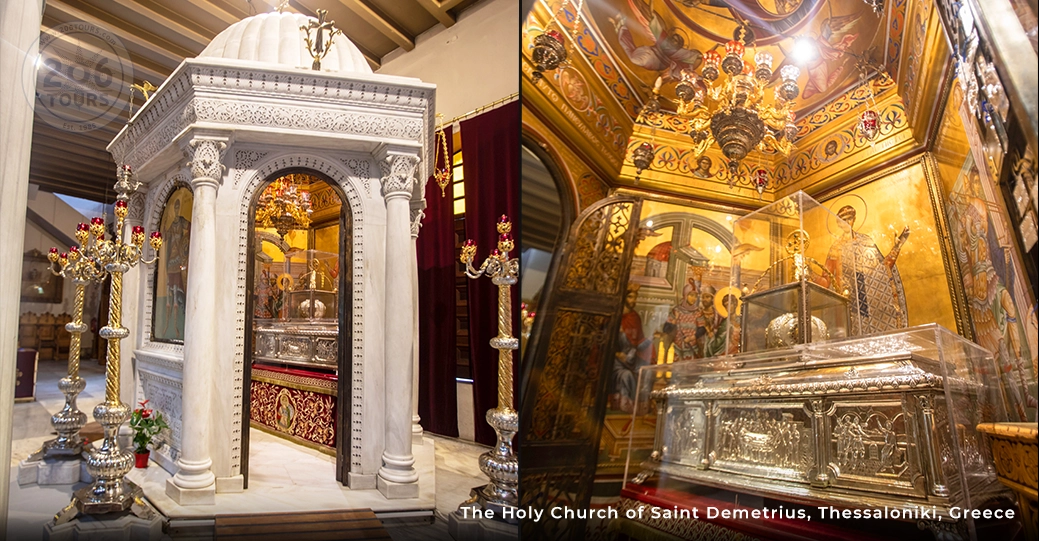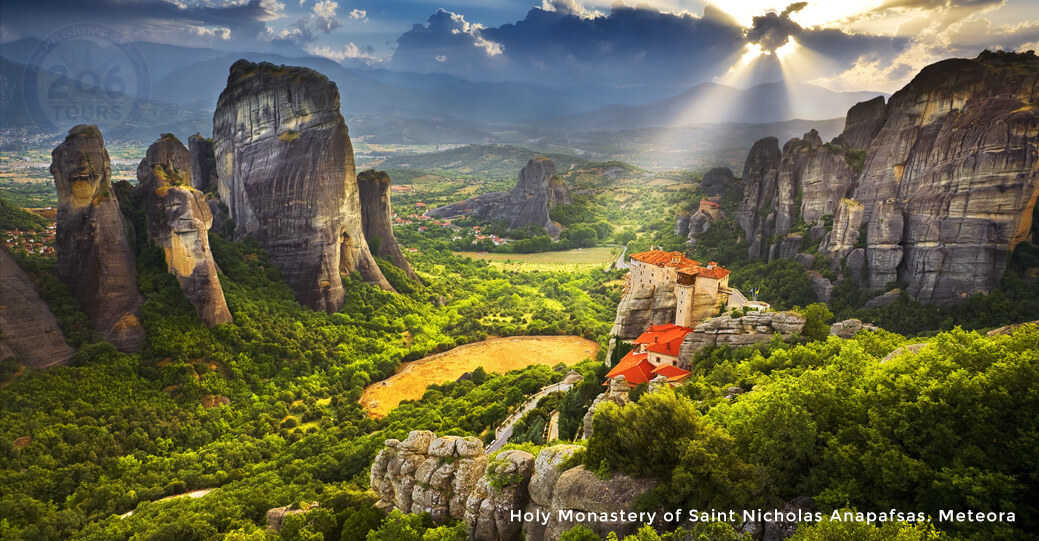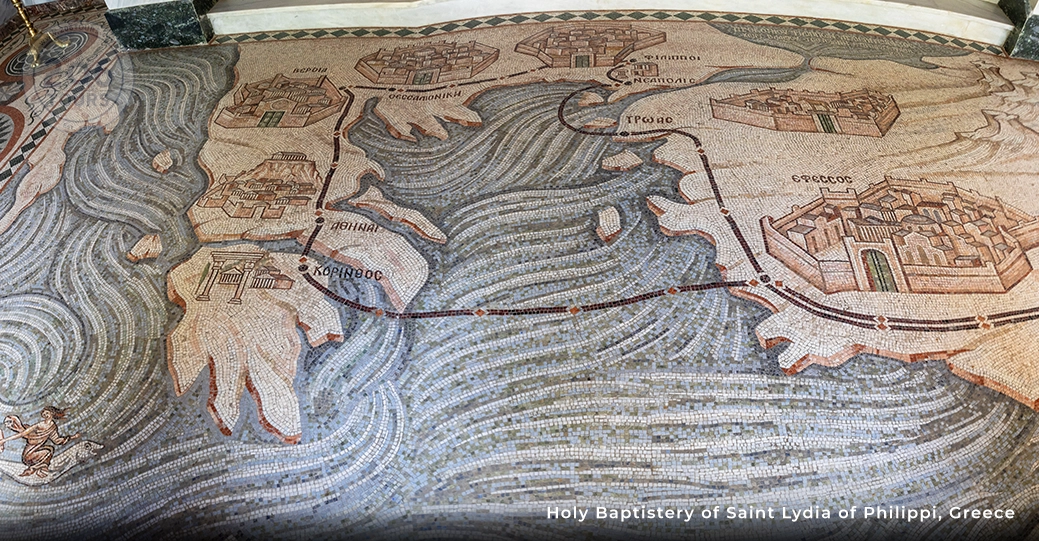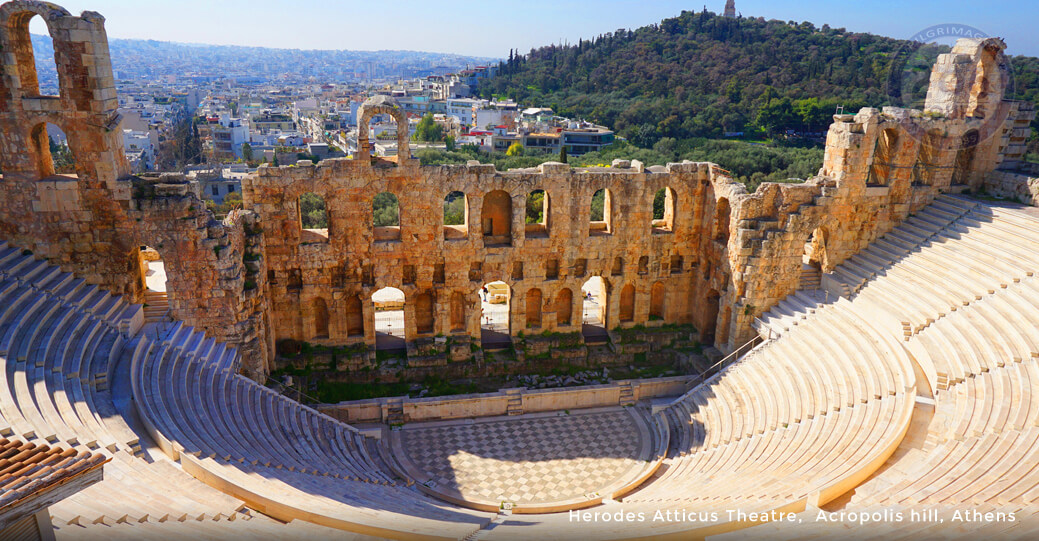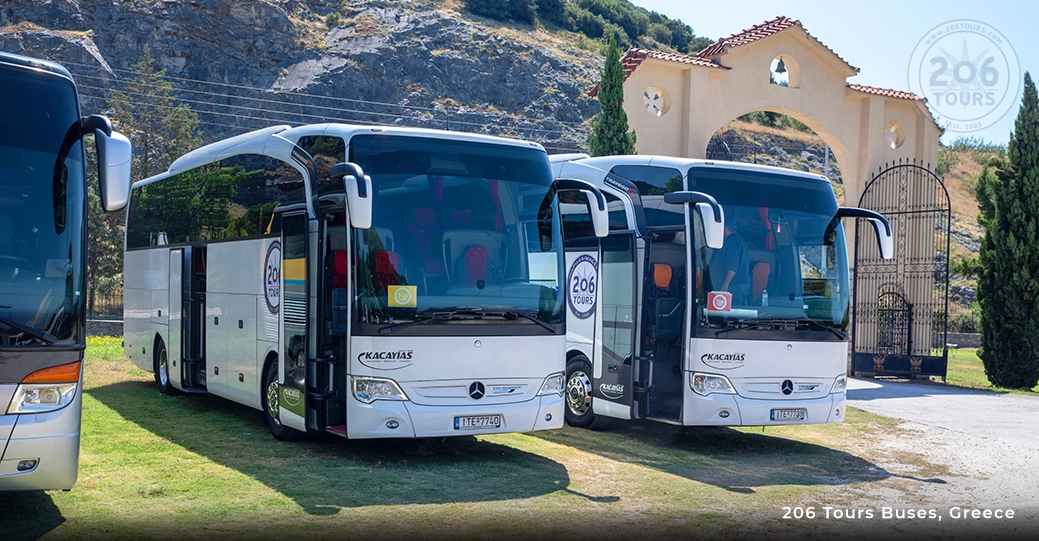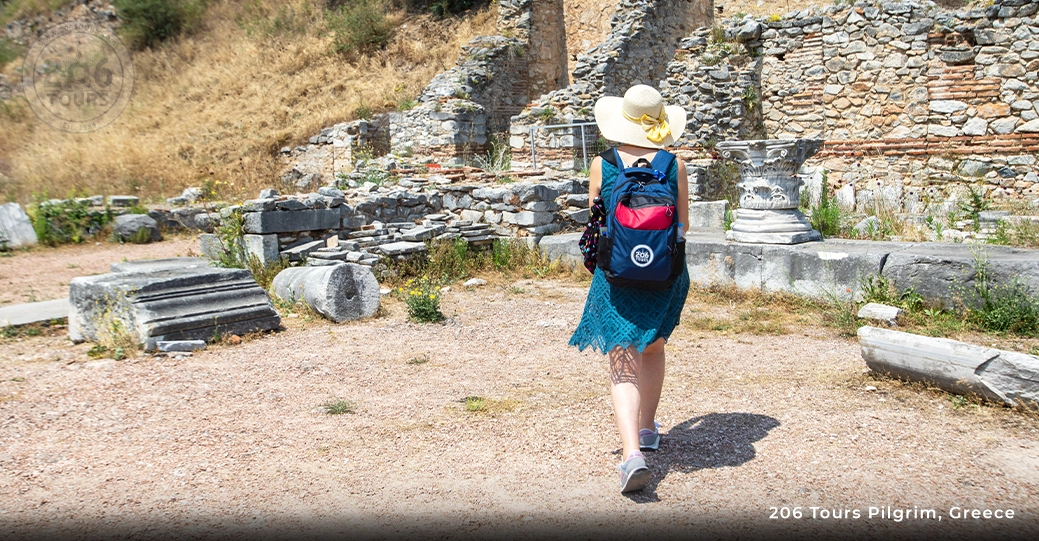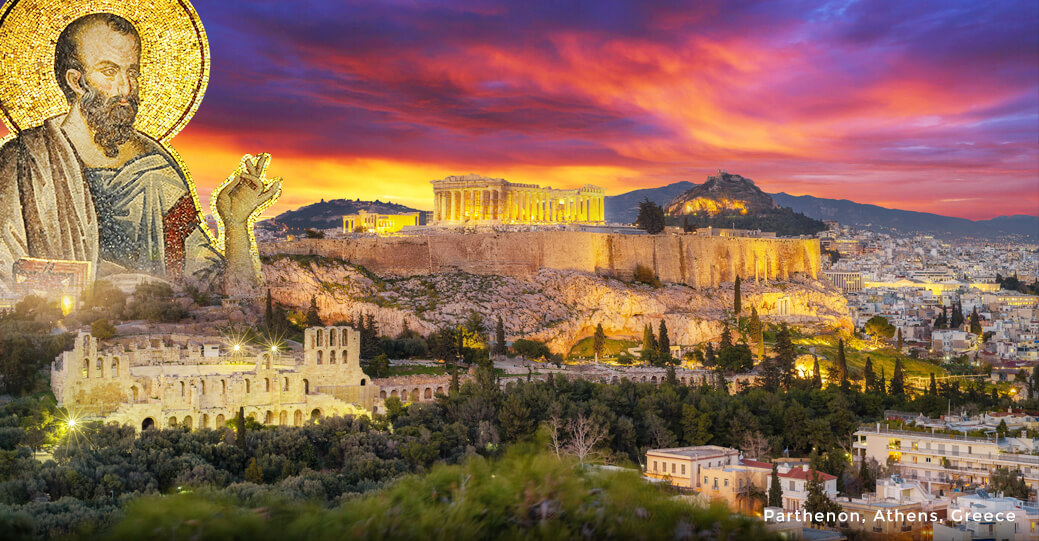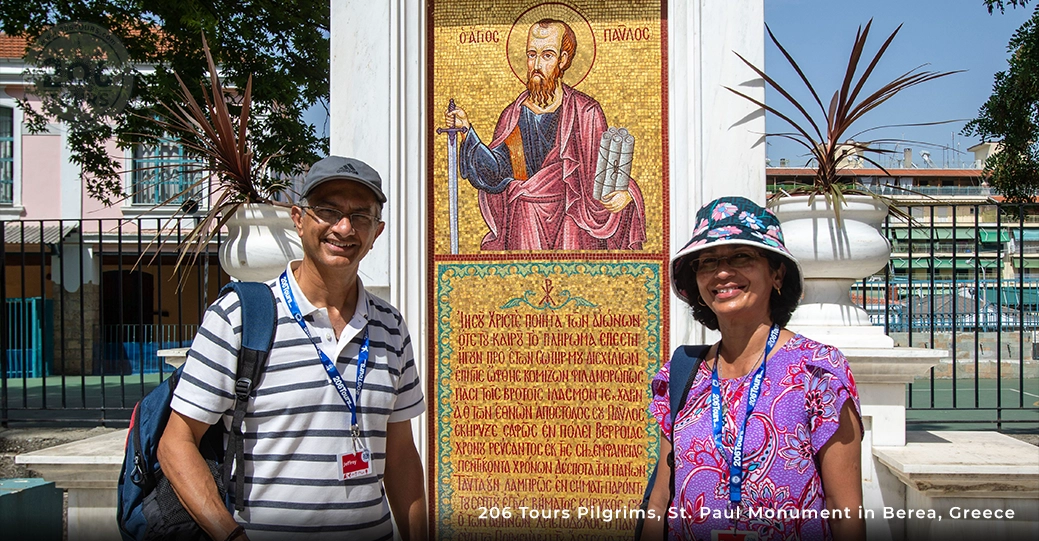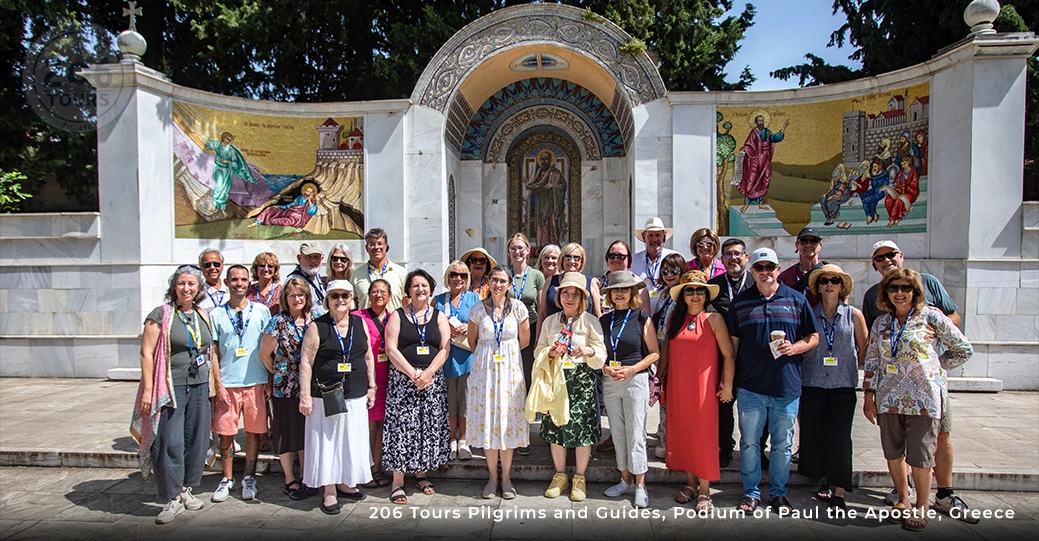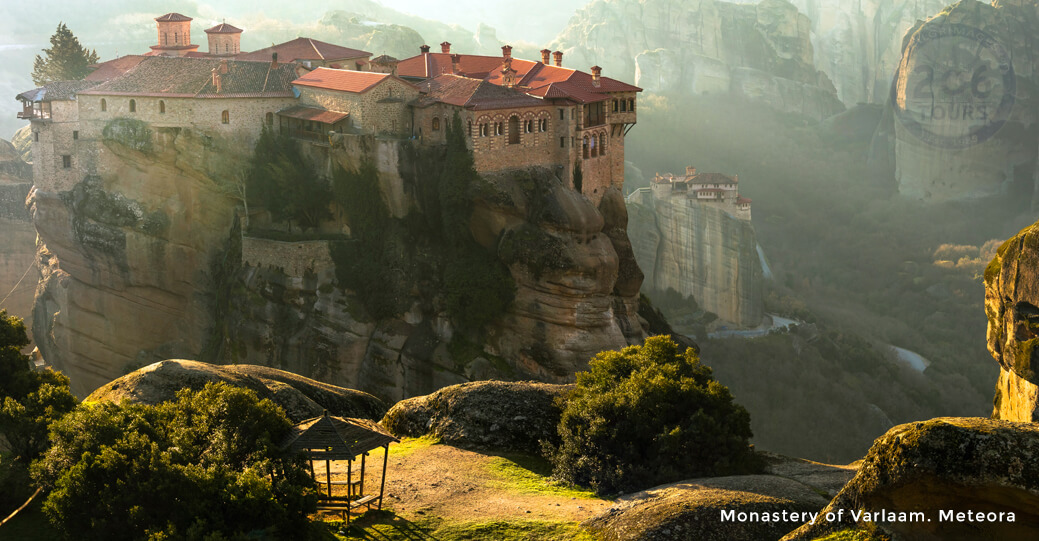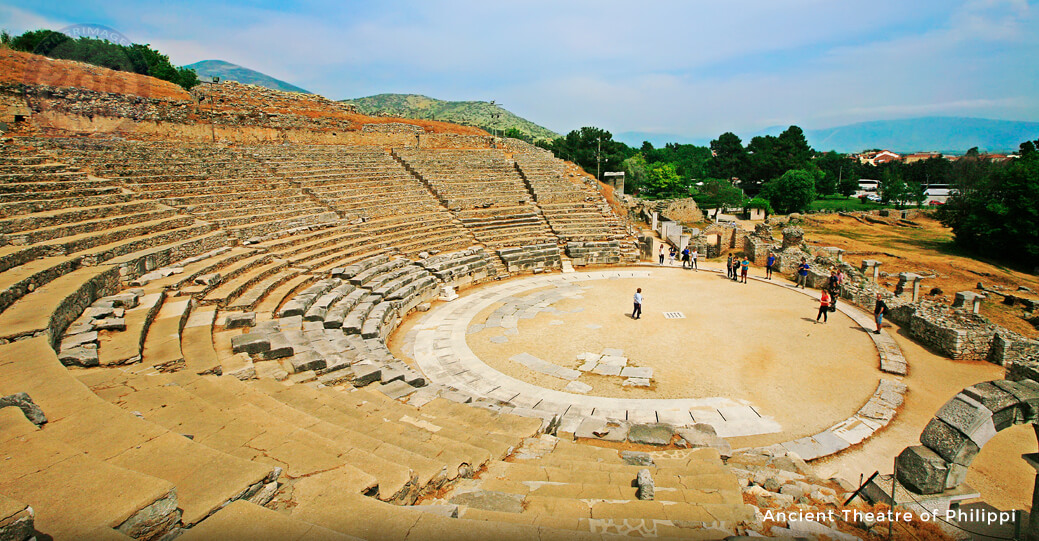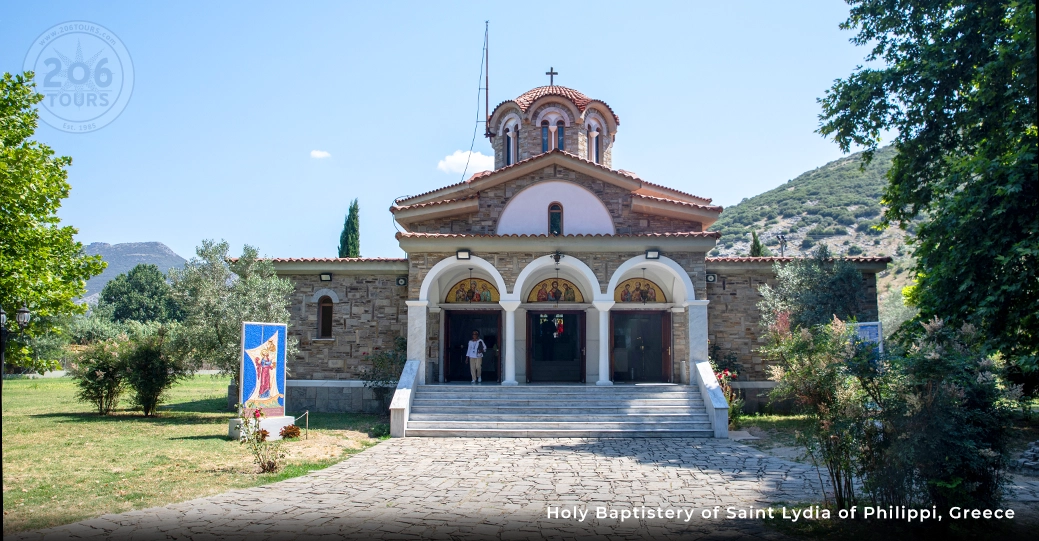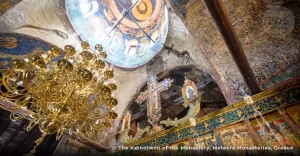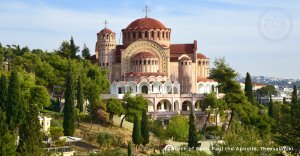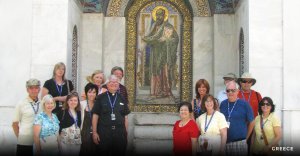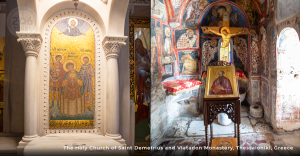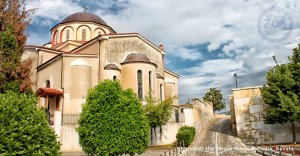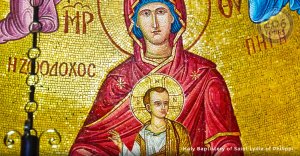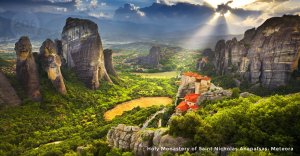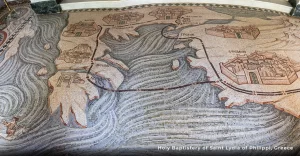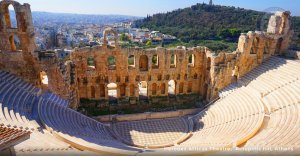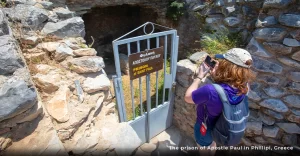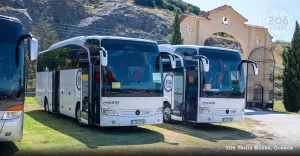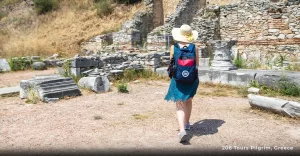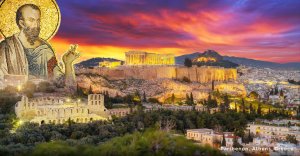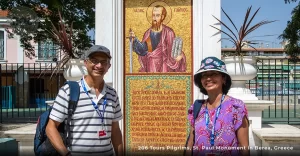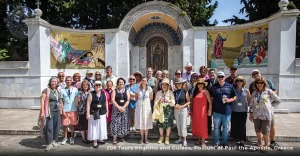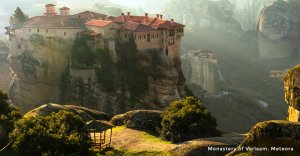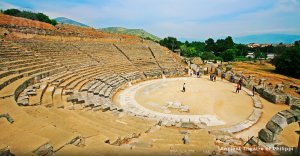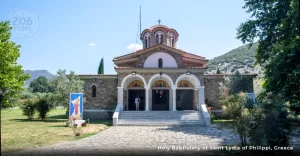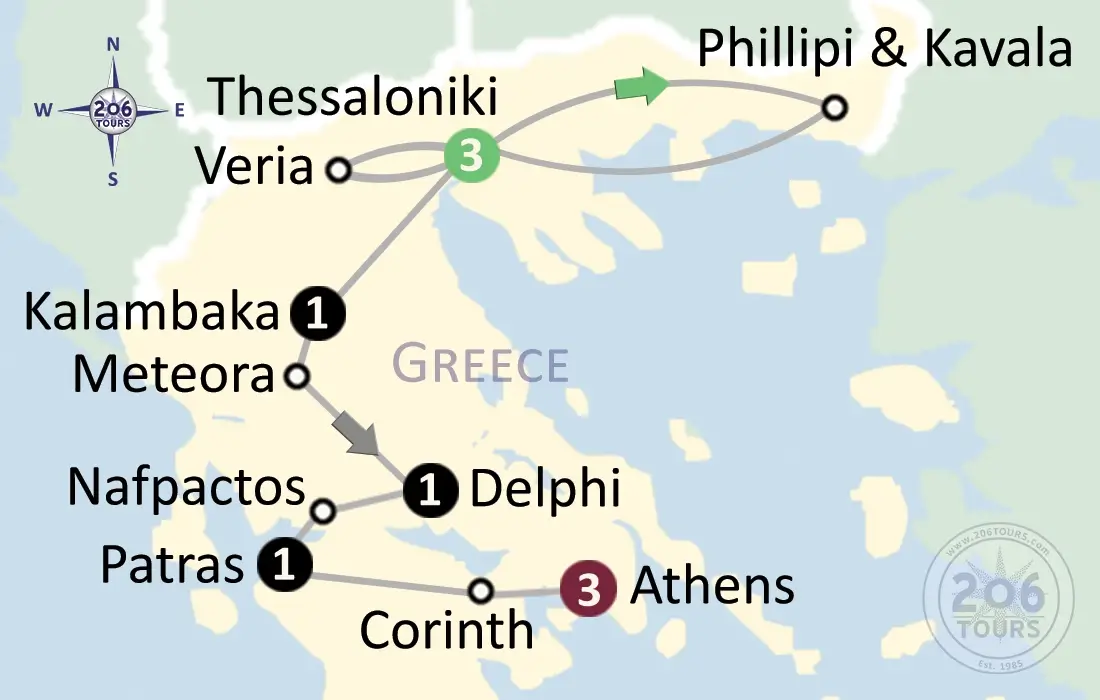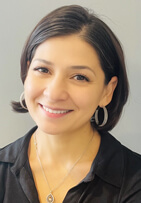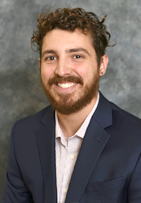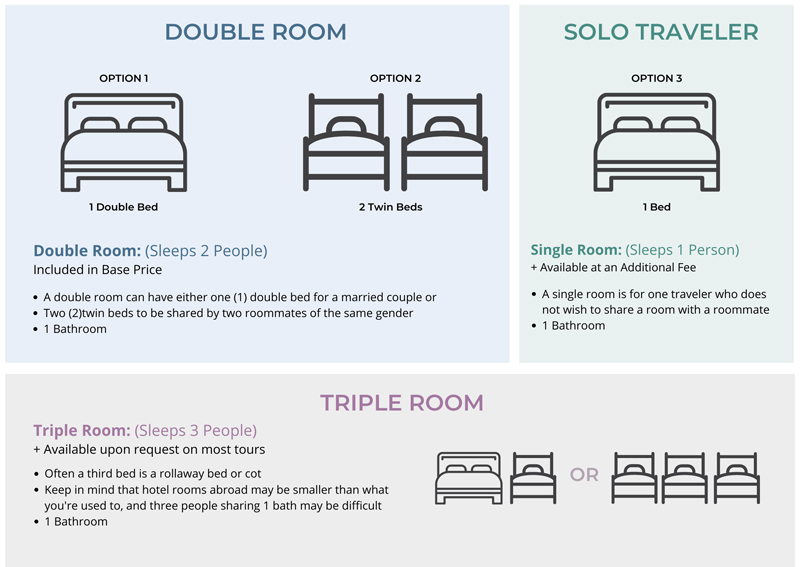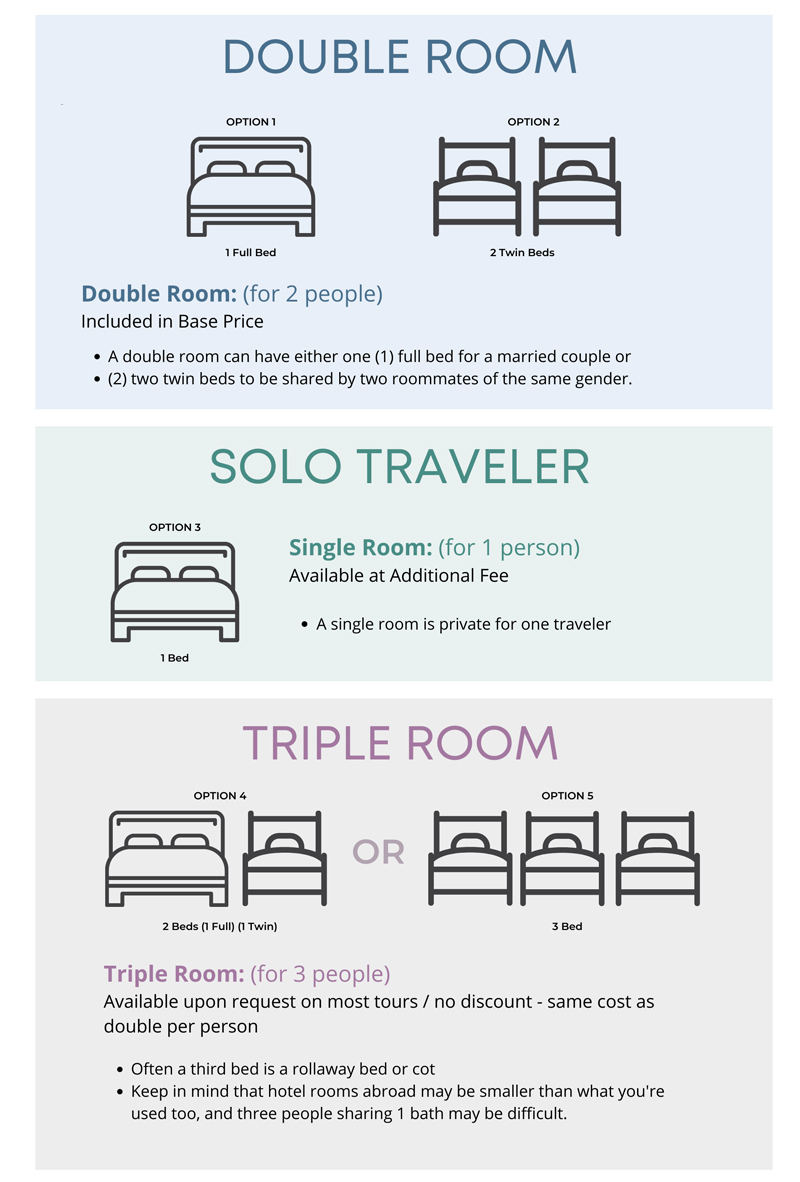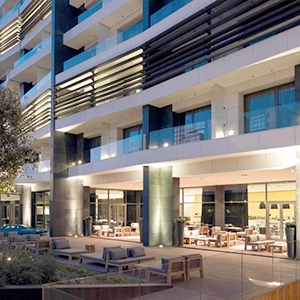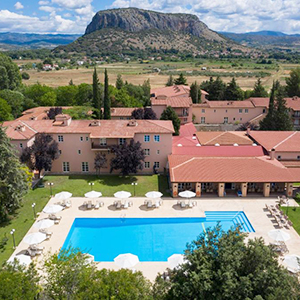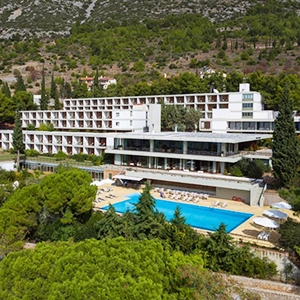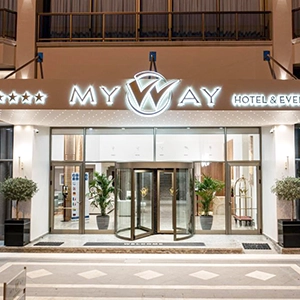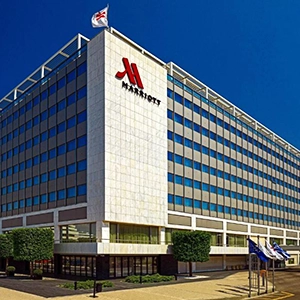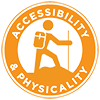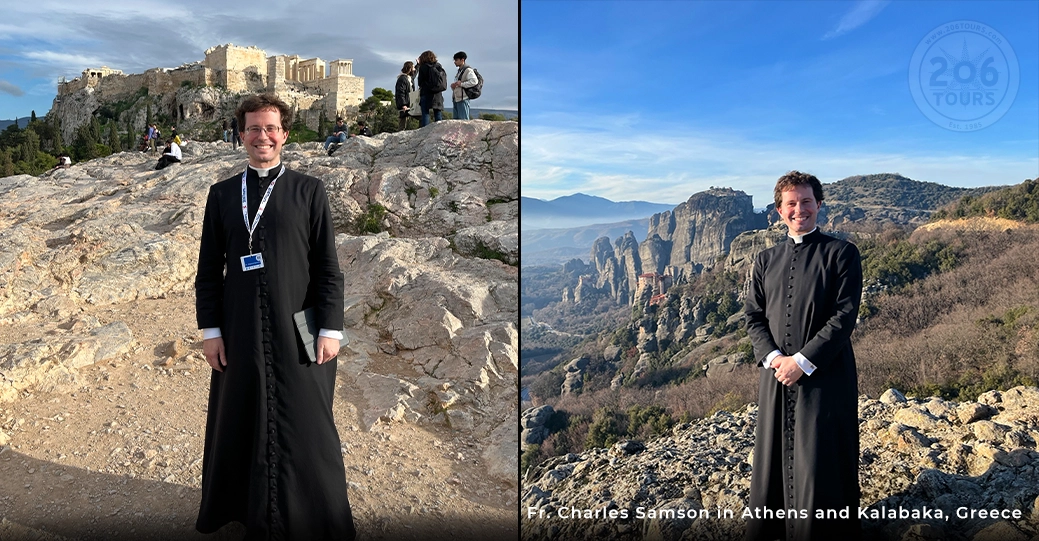Your trip includes
-
Round trip airfare from New York (JFK)
- Airport Taxes and Fuel Surcharges
- Hotel accommodations: (or similar) in double occupancy
- ~ 3 nights: Sep 21 - 24: The Met Hotel, Thessaloniki, Greece
- ~ 1 night: Sep 24 - 25: Amalia Hotel Kalambaka, Kalambaka, Greece
- ~ 1 night: Sep 25 - 26: Amalia Hotel Delphi, Delphi, Greece
- ~ 1 night: Sep 26 - 27: My Way Hotel & Events, Patras, Greece
- ~ 3 nights: Sep 27 - 30: Athens Marriott Hotel, Athens, Greece
- Breakfast and Dinner daily
- Wine with dinners
- Transfers as per itinerary
- Transportation by air-conditioned motor coach
- Whisper headsets
- Assistance of a professional local Guide
- Sightseeing and admissions fees as per itinerary
- Tips to Hotel Staff and Restaurants
- Mass daily & Spiritual activities
- Luggage handling (1 piece per person)
- Flight bag & Digital PDF confirmation of all travel documents
Not Included
- Lunches, Beverages not mentioned, Tips to your guide & driver.
Itinerary
Day 1 | Friday, September 20: Depart for Greece
Make your way to your local airport, where you will board your overnight flight(s). Your meals will be served on board.
Day 2 | Saturday, September 21: Arrive in Thessaloniki
Upon landing at Makedonia Thessaloniki Airport, make your way to the baggage claim area and collect your luggage. Proceed to the Arrivals Hall, where you will be greeted by your tour guide and/-or driver. Board the bus to transfer to your hotel. Enjoy some time to relax after check-in. After a delicious meal, overnight in Thessaloniki.
Day 3 | Sunday, September 22: Philippi – Kavala - Thessaloniki
After breakfast, start your journey in Greece with the first stop of the day in Philippi. Philippi was the city where Saint Paul the Apostle delivered his first sermon and he established the 1st church in Europe. “And from there (He went) to Philippi, which is the leading city of the district of Macedonia and a Roman Colony. We remained in this city some days”. (Acts 16:12-18). It is also the site where Saint Paul baptized a woman named Lydia, the first convert to Christianity in Europe. Visit the Roman Forum, where Saint Paul cast a spirit out of a fortune-telling woman. View the prison (now in ruins) where Saint Paul and Silas were thrown into by the owners of the fortune-tellers. Continue to the modern port city of Kavala, which was once the ancient Neapolis. This port is where Saint Paul, Silas, Luke, and Timothy landed when they sailed into Europe. Close to the port we can view a beautiful mosaic depicting St. Paul (the Call to Macedonia) and the arrival of the Apostle In town .Remains of ancient columns mark where St Paul tide his boat escorted by Silas. The mosaic can be seen at St. Nicholas church by the port This ancient city of Neapolis was later renamed Christoupolis because it was the first European city to accept Christianity. Imagine walking on the same sod as these men of the Bible! We will see the Roman Aqueduct and the ruins of the Acropolis in this beautifully located city, known since the 5th century as Kavala. After enjoying this city by the sea, return to Thessaloniki for a delicious meal and restful overnight.
Day 4 | Monday, September 23: Thessaloniki City Tour – Veria
Start your day with breakfast at the hotel. In the winter of 49-50 A.D., Saint Paul wrote two epistles to the Thessalonians. These letters urged Christians to “live blamelessly” and to refrain from living idly while they wait for the second coming of Christ. While in Thessaloniki, you will witness several ancient artifacts, such as the triumphal Arch of Galerius found at the start of Via Egnatia. Due to the convenient location, this arch was once a strategic artery of the Roman Empire and constructed to honor the Roman Emperor Galerius following the Roman victory over the Persians. We also see St. Demetrios Church with its valuable mosaics and frescoes and from here we walk to view the Roman Agora, a place St Paul was preaching. Then drive to the upper town which offers a marvelous view of the city. We drive through the modern church of St Paul and reach the site where the Monastery of Vlatadon was built and is believed to be the location where Jason’s house once stood and where St Paul was accommodated during his visit to Thessaloniki. Following the city-tour we drive to VERIA (Berea). According to historical resources, Paul the Apostle had visited Veria at least twice between 50 AD and 57 AD in order to teach the life of Jesus to the people of the region. The Apostle of the Nations was warmly welcomed since his first visit and his preaching had a great impact on the Verians and the Jews. Paul’s the Apostle passage through Veria and the impact of his preaching, reveal the significance of the town at the first steps of Christianity and the important role that the town played for the spreading and establishment the Christian faith in Greece. In the modern city stands a “Triptych monument” in remembrance of St Paul’s work. The monument includes three steps that were removed from a salvage dig at a nearby school property. The steps were reputed to have been from the location of the ancient synagogue. The display is made of colorful mosaic tile and displays three panels: the Macedonian man vision St Paul, and the address to the Bereans. Return to Thessaloniki for dinner and overnight.
Day 5 | Tuesday, September 24: Meteora - Kalambaka
After breakfast, board the motorcoach and drive to the Meteora Monasteries. In the eleventh century, some monks settled within caves. However, as the Turkish occupation increased, the monks were forced to move their settlements higher upon the rocks until they were unreachable by any opposing enemy. These settlements became Monasteries by bringing building and lifting materials by ladders and baskets. Notorious for preserving the Hellenic religion as well as their academics and arts. During your visit, you will be able to view stunning Byzantine art, as well as the breathtaking scenery that surrounds the monastery. Dinner and overnight in Kalambaka.
Day 6 | Wednesday, September 25: Delphi
Today, we drive to Delphi .Here we visit the center of the ancient world (navel) of the earth, Delphi. Its prestige extended far beyond the boundaries of the Hellenic world. On the slopes of Mount Parnassus in a landscape of unparalleled beauty and majesty, lie the ruins of the Sanctuary of Apollo Pythios. We visit the religious center of the ancient Greeks, of the so-called “Gentiles”, we learn more about their religion and how “extremely religious in every way” they used to be (Acts 17, 22) and we finally realize how difficult was the task of St Paul to Christianize them. In the museum, among other impressive artifacts, we see the “Gallio inscription” which is a precise chronological anchor for the Book of Acts, which places Apostle Paul in Corinth in 51 AD and helps to determine a timeline for Paul and his travels. Visit the site and the museum and continue to Athens “Men of Athens, I perceive that in every way you are religious. For as I passed along and observed the objects of your worship, I found, also, an altar with this inscription “to an unknown God”. What, therefore, you worship as unknown, this I proclaim to you” Athens is one of the most glorious cities in the world and the cradle of western civilization as we know it today. Dinner and overnight at your hotel in Delphi.
Day 7 | Thursday, September 26: Nafpactos, Patras
Today, we drive from Delphi to the seaside town of Nafpactos for a unique experience: Nafpaktos, Greece: The Battle of Lepanto and Memorial to Cervantes.
About the Battle of Lepanto:
October 7, 1751 a battle at sea helped to shape the future of Europe. At this time in history, the Ottoman Empire had swept across most of the Mediterranean. In 1571, the Turks conquered Cyprus and that finally provoked action by Pope Pius V, who formed the Holy League, under Don Juan of Austria. The naval forces were drawn from among Christian nations at the time to defend Christendom against what seemed to be the invincible Ottoman Empire. Pope Pius V ordered that all of Christendom pray the Rosary to stop the Islam forces that day. On board the ships of the Holy League, Mass was celebrated and the soldiers knelt to pray the Rosary before engaging the fresh forces of Islam. A fleet of over 200 galleys proceeded to the Gulf of Lepanto (now Naupactos), near the city of Nafpaktos, where they met the Turkish fleet on October 7, 1571. The galleys were mainly from Venice (the main sea power in the Eastern Mediterranean) as well as Spain, but included squadrons from the Papal States and Genoa. Our Lady of Guadalupe and the Battle of Lepanto: The Archbishop of Mexico had an exact copy of Our Lady of Guadalupe that was sent to King Philip II, who in turn gave it to Andrea Doria, one of the three principal admirals of the fleet, who placed it in his cabin. When the Armada went from file to line abreast and attacked on the morning of OCTOBER 7, 1571 the blue standard of Our Lady of Guadalupe was also flying from the masthead of Don Juan’s flagship.
The Victory of the Christian forces at Lepanto:
The result of the battle was an overwhelming victory for the Christian fleet: the Christians captured 117 galleys and 20 galliots (half-galleys), and sunk or destroyed some 50 other ships. Around 10,000 Turks were taken prisoner, and many thousands of Christian slaves were rescued. In the lopsided victory, the Christians suffered around 7,500 deaths, the Turkish side about 30,000. This marked the end of Turkish expansion in the Mediterranean, which had threatened to wipe out Christianity in favor of Islam. We cross the Rio–Antirrio Bridge, officially the Charilaos Trikoupis Bridge, is one of the world’s longest multi-span cable-stayed bridges and longest of the fully suspended type. It crosses the Gulf of Corinth near Patras, linking the town of Rio on the Peloponnese peninsula to Antirrio on mainland Greece by road. Drive to Patras,the third largest city of Greece built on the water. Dinner and overnight.
Day 8 | Friday, September 27: Patras St Andrew, Ancient Corinth, Athens
We celebrate Mass at St Andrew Catholic Cathedral of Patras The first Apostle called by Jesus was Andrew, who had previously been following John the Baptizer. Upon encountering Jesus he became his follower along with his brother Peter. Eventually both left their livelihood of fishing to become “fishers of men.” There is not a lot of recorded history regarding Andrew, but it is believed that after the Ascension of Our Lord he traveled to Greece to preach the Gospel. During the persecution of Christians by the Emperor Nero, he was arrested and later crucified on an X-shaped cross. He was tied, not nailed, to the cross and suffered for two days before dying, all the while preaching to those around him. His relics were first taken to Byzantium and then on to Scotland sometime in the Fourth Century and later returned to Greece.He is the the patron saint of many countries such as Barbados, Ukraine, Russia, Romania, Patras in Greece, Amalfi in Italy, Luqa in Malta, and Esgueira in Portugal. In addition, he is the Patron Saint of the U.S. Army Rangers.But he is honored most, perhaps, in Scotland. The national flag of Scotland bears the X-shaped cross and his feast day, November 30th, is a national holiday in Scotland. The relics of St Andrew are kept in Patras in the Church of Saint Andrew. The Basilica is not Roman Catholic, it is Greek Orthodox. It is open to the public, so everyone is welcome to come in to venerate the relics. Then, we drive to ancient Corinth. Under the shadow of the towering Acropolis, Saint Paul lived in Corinth for two years. While here, Saint Paul felt great grief over what the Gentile Church in Corinth has become. As a result, he wrote four letters, all with the overarching theme of love. In Corinth, view the remains of the first century shops, the site of the Saint Paul’s trial by Gallio, the Fountain of Peirene, and the Temple of Apollo. Following your visit to Ancient Corinth, we stop by Cachraee, the port from where St Paul sailed to Ephesus and we will continue to Athens for a delicious meal and overnight.
Day 9 | Saturday, September 28: Athens
Today, start with a tour of the oldest city in the world, Athens! Visit the rock that has dominated the panorama of Athens for twenty-five centuries, the Acropolis. At the Acropolis, you will see the ruins of the Parthenon, Erectheum, and Propylene. After, you will ascend Mars Hill of where Saint Paul spoke to the Athenians about the one and only God (Acts 17:22). While in this city, view the ancient Agora, the former public center of Athenian life. It held the focus of a political, commercial, social, religious, and cultural center. As you are in the former political center, proceed with a drive through the city to view the House of Parliament on Syntagma Square. Also, have the opportunity to view the University of Athens, the oldest higher education institute in Greece and, the National Library of Greece that holds 4,500 Greek manuscripts. Visit Panathenaic Stadium, the beautifully marbled multi-purpose stadium. It is home to the Olympian Zeus and the site of the first modern-era Olympics (1896).We continue with a visit to the New Acropolis Museum focused on the findings of the archaeological site of the Acropolis of Athens. The museum was built to house every artifact found on the rock and on the surrounding slopes, from the Greek Bronze Age to Roman and Byzantine Greece. The Acropolis Museum also lies over the ruins of part of Roman and early Byzantine Athens. Dinner and overnight in Athens.
Day 10 | Sunday, September 29: Byzantine & Christian Museum of Athens
Today, we will visit the Byzantine and Christian Museum – a Museum centered on but not limited to religious artefacts of the Early Christianity, Byzantium, Medieval, post-Byzantine and later periods which it exhibits but also acquires, receives, preserves, conserves, records documents, researches, studies, publishes and raises awareness. The 25,000 artefacts date from the 3rd to 20th century AD. In the afternoon drive to Cape Sounion. On the way we see the place where St Paul docked at his arrival by boat in Athens! We continue through the seaside road to the temple of Poseidon for breathtaking views. Return to Athens for dinner and overnight.
Day 11 | Monday, September 30: Return Home
After breakfast and heartfelt farewells, transfer to Athens airport for your return flight(s) home.
*206 Tours Disclaimer:
Occasionally local religious and national holidays, weather, traffic conditions and other events may necessitate changes in the sequence of events or the missing of certain events/places. Though every effort will be made to follow the itinerary, it should be considered as an indication, rather than a contract of events and places to be visited.
Would you like to arrive earlier or stay later?
Let us know at the time of registration if you would like to arrive earlier, or stay later, than the scheduled tour dates, and pending availability, we will change your airline reservations accordingly, additional fees may apply. Pre- and/or post-stays at the hotel will cost an additional fee. These options should be available to you when registering online, or simply contact us: sales@206tours.com

